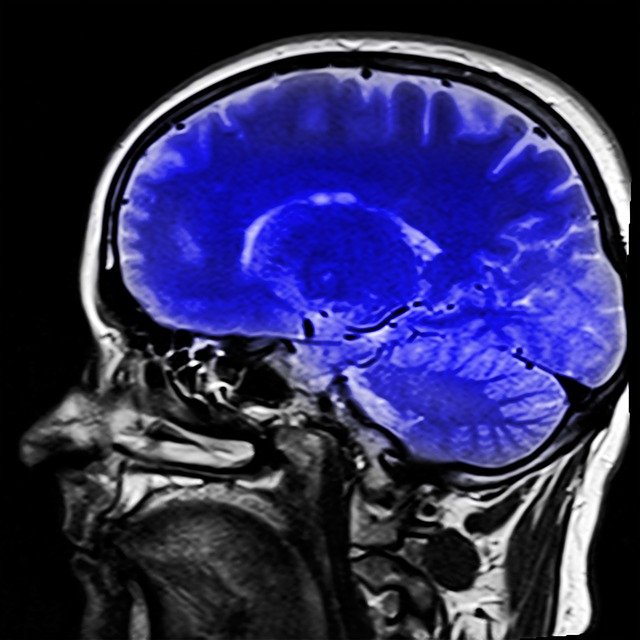 Last weekend I went to a seminar titled Building a Better Brain. The seminar email said that it was about how to treat Alzheimer’s and cognitive decline. The lecturer was a kick-ass gal from Georgia who really knew her stuff. More importantly, she was in actual clinical practice dealing with real patients every day. This is what drew me to the seminar. I can do my own information research in PubMed when I want to know what academic researchers are finding in their studies. But the insights on dealing with real patients in real-world situations can only come from someone in the trenches working with the reality of people’s real lives.
Last weekend I went to a seminar titled Building a Better Brain. The seminar email said that it was about how to treat Alzheimer’s and cognitive decline. The lecturer was a kick-ass gal from Georgia who really knew her stuff. More importantly, she was in actual clinical practice dealing with real patients every day. This is what drew me to the seminar. I can do my own information research in PubMed when I want to know what academic researchers are finding in their studies. But the insights on dealing with real patients in real-world situations can only come from someone in the trenches working with the reality of people’s real lives.
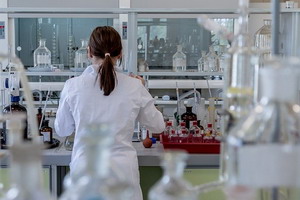 The seminar was focused on the myriad of biological imbalances that underlie brain diseases like Alzheimer’s. The reason medical science and drug companies have failed to make any progress with these types of diseases, despite spending billions of dollars in research, is that they are trying to fix an end-stage result of a lifetime of smaller problems all adding together. They are trying to fix the symptom and ignore the underlying causes. What are the underlying causes of brain disorders like Alzheimer’s you ask?
The seminar was focused on the myriad of biological imbalances that underlie brain diseases like Alzheimer’s. The reason medical science and drug companies have failed to make any progress with these types of diseases, despite spending billions of dollars in research, is that they are trying to fix an end-stage result of a lifetime of smaller problems all adding together. They are trying to fix the symptom and ignore the underlying causes. What are the underlying causes of brain disorders like Alzheimer’s you ask?
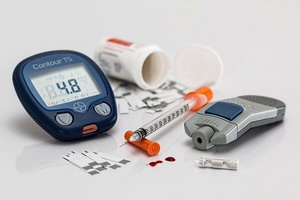
Blood sugar problems
Inflammation – chronic or acute
Chronic infections
Hormonal imbalances
Toxins – environmental and food
Digestive disorders
Nutrient depletion
Genetic weaknesses
Fatty acid imbalances
Microbiome dysfunction
Chronic emotional stress
 This is the simplified list. For a complete list and better understanding, I would refer you to Dr. Dale Bredesen’s book The End to Alzheimer’s where he discusses 31 different contributing causes of this condition. His book is not simply a theory as he is actually reversing Alzheimer’s disease in real patients. Here is a link to an updated paper he published recently on 100 successful cases since he wrote his book.
This is the simplified list. For a complete list and better understanding, I would refer you to Dr. Dale Bredesen’s book The End to Alzheimer’s where he discusses 31 different contributing causes of this condition. His book is not simply a theory as he is actually reversing Alzheimer’s disease in real patients. Here is a link to an updated paper he published recently on 100 successful cases since he wrote his book.
Reversal of Cognitive Decline: 100 Patients
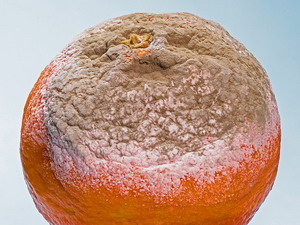 The speaker at my seminar is one of the coauthors of this study. Today I wanted to focus on one tiny aspect mentioned in this seminar – putrefaction. Right off the bat, this sounds nasty, and it is. Putrefaction is the rotting/fermenting of proteins in the gut. We have had previous newsletters discussing the wonders of fermented foods for your gut. But these were about fermenting vegetables with lactic acid-producing bacteria. These are good-guy bacteria for our guts. The kinds of critters that ferment proteins are almost all very bad for us. The ones you might know are Clostridium and Staph, good sources for disease, but there are a lot more. The bacteria that digest fiber, on the other hand, produce beneficial nutrients and vitamins for us from the fiber. What is supposed to happen is that when we eat protein the strong acid in the stomach breaks the first set of chemical bonds that clump up the proteins so the enzymes from the pancreas can then snip the protein chain down into individual amino acids which are then absorbed. There are almost no bacteria at the top of the small intestine where this is all supposed to happen, so no intact protein should be able to get down to the colon where these bacteria hang out.
The speaker at my seminar is one of the coauthors of this study. Today I wanted to focus on one tiny aspect mentioned in this seminar – putrefaction. Right off the bat, this sounds nasty, and it is. Putrefaction is the rotting/fermenting of proteins in the gut. We have had previous newsletters discussing the wonders of fermented foods for your gut. But these were about fermenting vegetables with lactic acid-producing bacteria. These are good-guy bacteria for our guts. The kinds of critters that ferment proteins are almost all very bad for us. The ones you might know are Clostridium and Staph, good sources for disease, but there are a lot more. The bacteria that digest fiber, on the other hand, produce beneficial nutrients and vitamins for us from the fiber. What is supposed to happen is that when we eat protein the strong acid in the stomach breaks the first set of chemical bonds that clump up the proteins so the enzymes from the pancreas can then snip the protein chain down into individual amino acids which are then absorbed. There are almost no bacteria at the top of the small intestine where this is all supposed to happen, so no intact protein should be able to get down to the colon where these bacteria hang out.
 But what if the stomach does not have enough acid to do its job to unclump the protein molecules so the enzymes can then snip the chain apart down to separate amino acids? Well, whole proteins then travel down to the colon where the bad guy bacteria feed on them and produce many poisons we then absorb. There are a number of nasty chemicals they produce that will cause us problems, but the one I want to focus on is ammonia. That’s right, the same stuff you clean windows and greasy counters with. Protein putrefaction releases ammonia into the colon which then enters our bloodstream and goes through our body. Ammonia is highly toxic to the brain. That is why it was mentioned in this brain seminar. So, eating proteins when your stomach acid is not strong enough results in you producing a potent neurotoxin that tries to kill your brain.
But what if the stomach does not have enough acid to do its job to unclump the protein molecules so the enzymes can then snip the chain apart down to separate amino acids? Well, whole proteins then travel down to the colon where the bad guy bacteria feed on them and produce many poisons we then absorb. There are a number of nasty chemicals they produce that will cause us problems, but the one I want to focus on is ammonia. That’s right, the same stuff you clean windows and greasy counters with. Protein putrefaction releases ammonia into the colon which then enters our bloodstream and goes through our body. Ammonia is highly toxic to the brain. That is why it was mentioned in this brain seminar. So, eating proteins when your stomach acid is not strong enough results in you producing a potent neurotoxin that tries to kill your brain.
 The story is even more interesting than this. Obviously, if this were all there was to the story everybody that uses a stomach acid-blocking drug (like Nexium or Prevacid) would be brain dead. (Currently, 110 million people in the US are on proton pump inhibitors – almost 1/3rd of the population. Fun fact, the majority of the folks on acid blockers don’t have excess acid, but low acid. Low acid can cause GERD.) I would like to believe that we do not have that many zombies on the road when I go to work in the morning, but maybe so. In reality, your body calls on other resources to stop the ammonia. One, in particular, tetrahydrobiopterin, more easily known as BH4, is used to break down ammonia that makes it to the brain. Most of the rest in the bloodstream is broken down to urea in the liver if the liver is working properly.
The story is even more interesting than this. Obviously, if this were all there was to the story everybody that uses a stomach acid-blocking drug (like Nexium or Prevacid) would be brain dead. (Currently, 110 million people in the US are on proton pump inhibitors – almost 1/3rd of the population. Fun fact, the majority of the folks on acid blockers don’t have excess acid, but low acid. Low acid can cause GERD.) I would like to believe that we do not have that many zombies on the road when I go to work in the morning, but maybe so. In reality, your body calls on other resources to stop the ammonia. One, in particular, tetrahydrobiopterin, more easily known as BH4, is used to break down ammonia that makes it to the brain. Most of the rest in the bloodstream is broken down to urea in the liver if the liver is working properly.
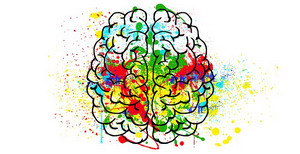 We are mostly aware that how we feel is controlled by neurotransmitter chemicals in the brain. We know about serotonin for feeling safe and okay, dopamine for feeling excited and focused, GABA for calming down, and acetylcholine for thinking. Here is the thing, you need BH4 to make every one of these, and we don’t have all that much BH4. So guess what? If your brain has to use its supply of BH4 to stop ammonia from frying your brain, you stop making enough neurotransmitters to feel safe or good, or quiet, or to even think clearly. Get the picture? Putrefaction in your gut effectively shuts down your thinking and feeling. What the bugs in your gut are having for dinner directly affects how you think and feel. Chronic disturbance of neurotransmitter function is one of the many underlying causes of Alzheimer’s disease, dementia, Parkinson’s, and many other brain disorders.
We are mostly aware that how we feel is controlled by neurotransmitter chemicals in the brain. We know about serotonin for feeling safe and okay, dopamine for feeling excited and focused, GABA for calming down, and acetylcholine for thinking. Here is the thing, you need BH4 to make every one of these, and we don’t have all that much BH4. So guess what? If your brain has to use its supply of BH4 to stop ammonia from frying your brain, you stop making enough neurotransmitters to feel safe or good, or quiet, or to even think clearly. Get the picture? Putrefaction in your gut effectively shuts down your thinking and feeling. What the bugs in your gut are having for dinner directly affects how you think and feel. Chronic disturbance of neurotransmitter function is one of the many underlying causes of Alzheimer’s disease, dementia, Parkinson’s, and many other brain disorders.
 Let’s move on to how to remedy low stomach acid problems so we don’t have to sacrifice our brain to the pharmaceutical system. The three biggest reasons for low hydrochloric acid production in the stomach are H. pylori infection, low zinc levels, and chronic emotional stress. These are part of the above list – chronic infections and nutrient depletion. There are lab tests for H. pylori infections and both natural and medical treatments for this. Personally, if I suspect an H. pylori infection, I go straight to the herbal remedy as the full treatment is much less expensive than the testing and won’t hurt you if the suspicion is wrong.
Let’s move on to how to remedy low stomach acid problems so we don’t have to sacrifice our brain to the pharmaceutical system. The three biggest reasons for low hydrochloric acid production in the stomach are H. pylori infection, low zinc levels, and chronic emotional stress. These are part of the above list – chronic infections and nutrient depletion. There are lab tests for H. pylori infections and both natural and medical treatments for this. Personally, if I suspect an H. pylori infection, I go straight to the herbal remedy as the full treatment is much less expensive than the testing and won’t hurt you if the suspicion is wrong.
 Zinc testing is super easy – we do it in the office. It is just a taste test in which you taste a zinc solution. If you can’t taste anything, you are very deficient in zinc. If it tastes really bad, then you are good. The remedy of course is to take zinc. But there are a couple of problems with this. One – you can’t absorb minerals without stomach acid, including zinc. You need zinc to make stomach acid, but you can’t absorb zinc without stomach acid. Sounds like a catch 22. Second – taking too much zinc can shut off your sense of taste and smell, and cause copper depletion which produces a type of anemia. So what can we do? My usual tact is to use children’s zinc lozenges to get the zinc into the system through skin absorption in the mouth thereby skipping the digestion issue. Children’s lozenges are usually a low enough dosage of zinc to avoid the over-dosing problem. Zinc is a vital co-factor in over 300 enzyme reactions in the body. You absolutely need zinc.
Zinc testing is super easy – we do it in the office. It is just a taste test in which you taste a zinc solution. If you can’t taste anything, you are very deficient in zinc. If it tastes really bad, then you are good. The remedy of course is to take zinc. But there are a couple of problems with this. One – you can’t absorb minerals without stomach acid, including zinc. You need zinc to make stomach acid, but you can’t absorb zinc without stomach acid. Sounds like a catch 22. Second – taking too much zinc can shut off your sense of taste and smell, and cause copper depletion which produces a type of anemia. So what can we do? My usual tact is to use children’s zinc lozenges to get the zinc into the system through skin absorption in the mouth thereby skipping the digestion issue. Children’s lozenges are usually a low enough dosage of zinc to avoid the over-dosing problem. Zinc is a vital co-factor in over 300 enzyme reactions in the body. You absolutely need zinc.
 Chronic emotional stress is a tough challenge. The fear of lurking death everywhere over the last two years has seriously damaged peoples digestive abilities. I hear about the increased digestive issues every day in the office. When we are in fear the blood to our digestive tract is shunted out to muscles so we can run or fight to protect ourselves from the fear. Proper digestion requires us to relax. When we are stressed or rushed while we eat, our proteins don’t digest well and we are not able to get the minerals we need to be healthy. One way to reduce stress induced anxiety is with the herb lemon balm, either as a capsule or taken as tea several times a day.
Chronic emotional stress is a tough challenge. The fear of lurking death everywhere over the last two years has seriously damaged peoples digestive abilities. I hear about the increased digestive issues every day in the office. When we are in fear the blood to our digestive tract is shunted out to muscles so we can run or fight to protect ourselves from the fear. Proper digestion requires us to relax. When we are stressed or rushed while we eat, our proteins don’t digest well and we are not able to get the minerals we need to be healthy. One way to reduce stress induced anxiety is with the herb lemon balm, either as a capsule or taken as tea several times a day.
 It should be clear we don’t want putrefaction in our gut. Even when our digestion is working well, meat digestion only breaks down 90% of the protein and vegetable protein only breaks down 70 to 80% in the upper gut. That means some level of undigested protein is always getting into the lower gut. That means bad gut bugs are always being fed and producing ammonia. We can help this by eating lots of soluble fiber to feed the good guy bugs. Lots of the good guys can help crowd out the bad guys. It might be tempting to think that what we need to do is lower our protein intake to prevent these problems, but this ends up being totally false. We need protein to make every cell in our body. One of the main reasons for the problems associated with aging comes from not getting enough protein in our diet as we age. Our ability to properly digest protein decreases with age, so what we have to do is supplement our diet with tablets of digestive enzymes and hydrochloric stomach acid every time we eat proteins in a meal.
It should be clear we don’t want putrefaction in our gut. Even when our digestion is working well, meat digestion only breaks down 90% of the protein and vegetable protein only breaks down 70 to 80% in the upper gut. That means some level of undigested protein is always getting into the lower gut. That means bad gut bugs are always being fed and producing ammonia. We can help this by eating lots of soluble fiber to feed the good guy bugs. Lots of the good guys can help crowd out the bad guys. It might be tempting to think that what we need to do is lower our protein intake to prevent these problems, but this ends up being totally false. We need protein to make every cell in our body. One of the main reasons for the problems associated with aging comes from not getting enough protein in our diet as we age. Our ability to properly digest protein decreases with age, so what we have to do is supplement our diet with tablets of digestive enzymes and hydrochloric stomach acid every time we eat proteins in a meal.
 It seems kind of rude, but this gradual loss of our ability to digest and absorb our food is Mother Nature’s way of saying “You can’t produce offspring, so you are not needed anymore.” Personally, I am not ready to degenerate and die, so I choose to fight back. That means I have to do a lot of compensation and supplementation to my diet and life to keep things rolling along.
It seems kind of rude, but this gradual loss of our ability to digest and absorb our food is Mother Nature’s way of saying “You can’t produce offspring, so you are not needed anymore.” Personally, I am not ready to degenerate and die, so I choose to fight back. That means I have to do a lot of compensation and supplementation to my diet and life to keep things rolling along.
Are any of you feeling the creep of years leaving its mark on your vitality? It is hard work fighting the downhill slide called aging.
Take care,
David
